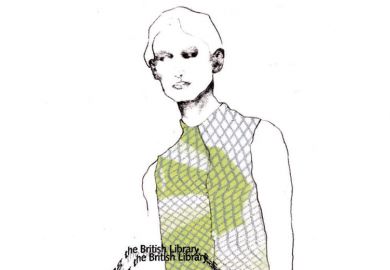“Contemporary Archaeology begins with the commitment that the more carefully we attend to objects, buildings and landscapes, the more human our account of the world may become.”
That bold ideal for their discipline is at the heart of a new book titled Lande: The Calais “Jungle” and Beyond, by Dan Hicks, professor of contemporary archaeology at the University of Oxford, and postdoctoral researcher Sarah Mallet. It accompanies an exhibition of the same name at Oxford’s Pitt Rivers Museum and is available open access online and in hardback from Bristol University Press, with all royalties going to L’Auberge des Migrants, which has aided displaced people in Calais since 2008.
The book notes the terrible story of “the transformation of [a] large open site of sandy wasteland on the industrial eastern edge of town, a state-owned former rubbish dump lying between the road and the sea, into an ultra-militarised landscape of encampments, barriers, violent conflict and the regime of ‘deterrence’”, where “at its peak more than 10,000 displaced people lived”. It considers the significance of Calais as “the largest European passenger port, carrying 30 million passengers via Eurostar and ferries in 2017”, and which “still handles 17 per cent of all UK trade with the world”.
But it also puts what happened in the Jungle into a number of wider contexts. Until an agreement made in the 1560s, Calais was essentially “England’s last overseas possession on the European mainland” and “its last pre-colonial overseas possession, the withdrawal from which was a key moment in the emergence of the new oceanic geographies of empire”. While believing that “Britain’s fantasies about its imperial past are increasingly wild and self-delusional”, the authors seek to “bear witness to the border as an ongoing (post)colonial technology”. Most asylum seekers in Britain, they remind us, “come from regions that were formerly part of the British empire”, with those displaced at Calais coming “overwhelmingly” from “just four states: Afghanistan, Sudan, South Sudan, and Eritrea (with some smaller but significant numbers of Somalians)”.
Even more disturbingly, Hicks and Mallet argue that the Jungle may be a sign of a more general trend, citing a researcher called Cyrille Hanappe to the effect that “the most rapidly developing urban model is that of the precarious city…nearly a third of the world’s population will live in such neighbourhoods by 2030”.
And what of the responsibility of academics? Although anthropology (exemplified not least by museums such as the Pitt Rivers) is “the discipline that has been closest to the ongoing colonial project”, Lande sees scope for it to reinvent itself “as an anti-racist discipline” that “can not only relativise and historicise borderwork, but can also resist it and Fascist nativism too internationally”. Along with this goes “a responsibility to continue to make visible the inhuman treatment of displaced people on European soil and at its walls”.
For their fellow archaeologists, meanwhile, Hicks and Mallet claim “there can be no more urgent task…than to excavate and advocate for the undocumented present”.
POSTSCRIPT:
Print headline: A new social mission for anthropology
Register to continue
Why register?
- Registration is free and only takes a moment
- Once registered, you can read 3 articles a month
- Sign up for our newsletter
Subscribe
Or subscribe for unlimited access to:
- Unlimited access to news, views, insights & reviews
- Digital editions
- Digital access to THE’s university and college rankings analysis
Already registered or a current subscriber?







